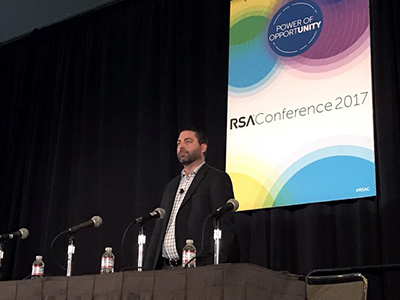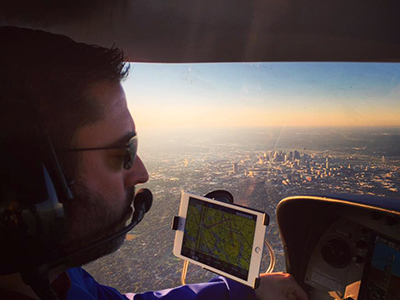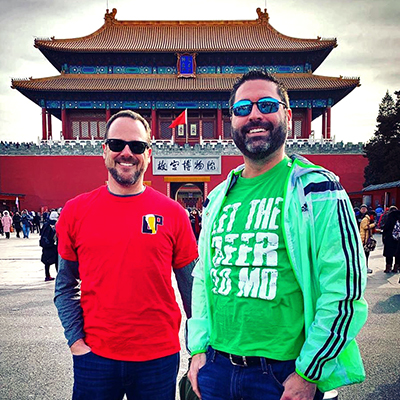 Menu
Menu



In September, Branden Williams, MBA ’04, an adjunct instructor for the Satish and Yasmin Gupta College of Business, accomplished a long-held dream: being awarded a patent. Officially listed as U.S. Patent No. 10,423,965, “Method and apparatus for establishing and maintaining PCI DSS compliant transaction flows for banking entities leveraging non-EMV tokens,” Williams’ patent draws from his extensive work in information technology and cybersecurity and comes up with a novel way to process payment systems.
Williams has spent almost 25 years working as a scholar-practitioner in the information technology/cybersecurity industry. After growing up in the Dallas/Fort Worth area, he received his MBA from UD in 2004 and completed his DBA at Capella University. He has run strategy for two cybersecurity groups — both of which focused on firms that accept credit/debit cards as a form of payment — and written a number of books on the Payment Card Industry Data Security Standard (PCI DSS) in addition to serving on their board of advisers. In his free time, he is a private pilot who flies out of Addison Airport, an avid foodie, a barbecue pitmaster and a traveler.
While the formal abstract of the patent can be read online on the official listing, Williams described the idea in layman’s terms: “When you look at a credit or debit card in your wallet, you typically see a payment network logo such as Visa or MasterCard, but they are only a connector of firms who sell things to banks. The bank logo on the front of the card is the financial institution responsible for backing the transaction, also known as an ‘issuing bank’ or ‘issuer.’ PCI DSS as a standard was not originally targeted toward issuers, but through outcry in the industry they are now listed as a covered entity in the standard. Even though they are listed as covered, however, there is little participation and virtually zero enforcement.”
“Once I arrived at my current job, I noticed a huge gap in the product set around protecting issuers from themselves,” he continued. “After working on the merchant and acquiring side of the house for so many years, I applied my knowledge of payment systems to patent a process that allows issuers to comply with PCI DSS by simply removing the payment card from their environment. Simply stated, a processor or the network upstream of them would replace the payment card number you see on the card with a replacement number that would still identify the customer, but could not be used to run a transaction. Surprisingly, nobody had thought of that angle and thought to patent it.”
Luckily for Williams, he saw this novel approach and took the leap. He filed for a patent three years ago, and it was finally awarded on Sept. 24, 2019. His original insight is now formally listed.
“My goal with this patent is to have financial processing firms license it and offer products back to their issuing customers,” said Williams. “Ultimately, I am thrilled to be the sole inventor of something that I could patent (this was my third attempt at patenting something), following in the footsteps of my father, who is also a former UD adjunct and has his own patent in his field.”
While Williams’ patent draws extensively from his years of experience in the information technology/cybersecurity industry, he also credited his time studying and teaching at UD for inspiring his research.
“When you teach in the cybersecurity field, learners often challenge professors by asking the hard questions,” he said. “On more than one occasion, a learner has asked a question along the lines of, ‘Why isn’t the world this way?’ and it makes you stop, think and say, ‘Yeah, why isn’t it that way?’”
Not only have the lively dialogue and thoughtful questioning of students prodded his own research, but the university’s concern for human nature has also grounded his focus. In his studies of cybersecurity and technology, he has discovered certain characteristics about the human person. “My research is all in the cybersecurity field, but it primarily focuses on the human element,” he said.
As he celebrates his patent and looks forward to what it will achieve, Williams expressed thanks for his alma mater and hope for its future: “I’m grateful for my experience here at the university both as a student over 15 years ago and as a professor today. I’m excited to shape our future graduates and help make them instantly productive after walking the stage!”